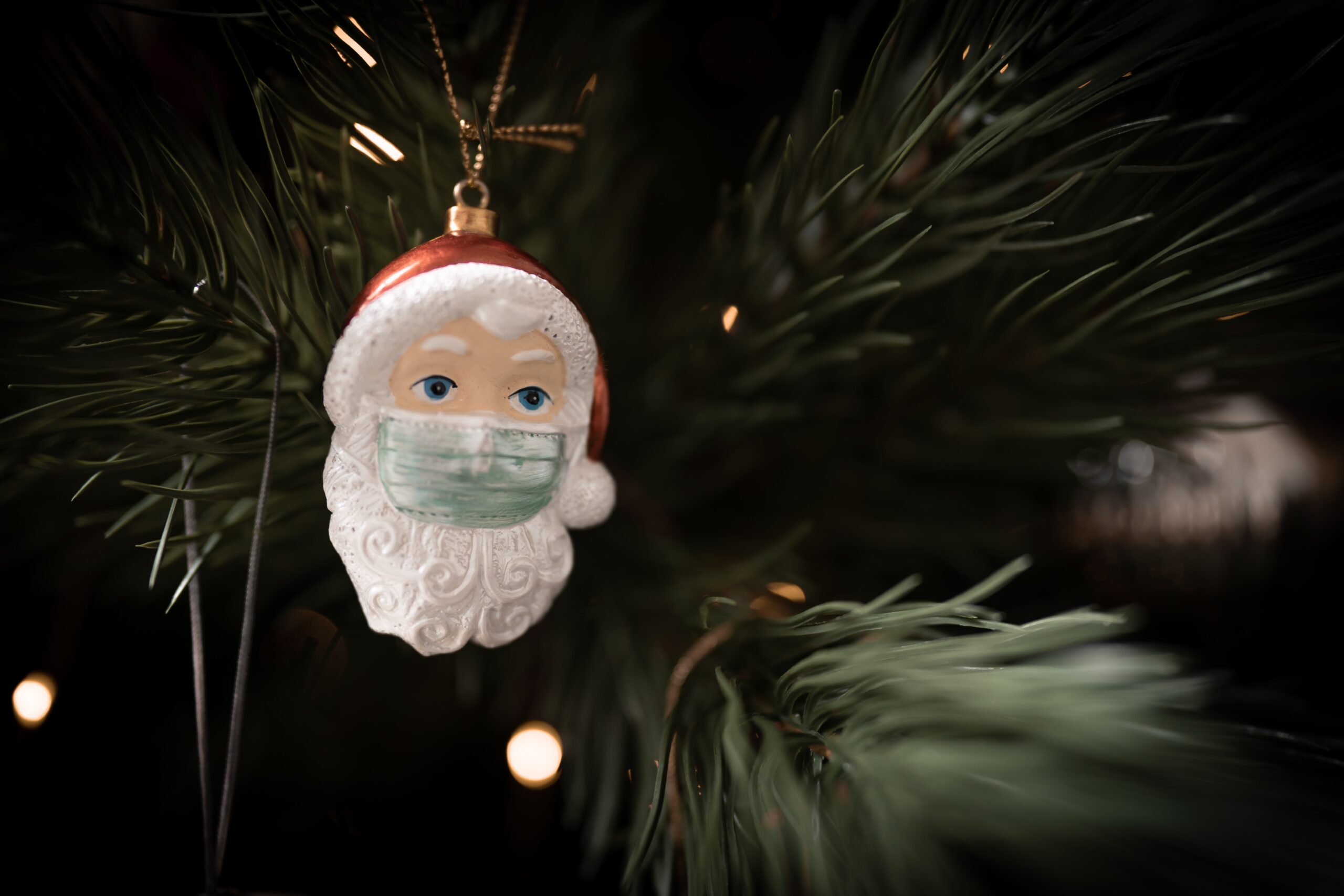
It’s the most wonderful time of the year – a time to be with those closest to us, give to others, celebrate and be grateful. While this is all true, it can be important to acknowledge that the holiday season can be a difficult time for many people. We are currently facing our second Christmas in a pandemic, and this comes with additional challenges. Many people may also be experiencing social anxiety, burnout, depression or grief.
If you’re finding Christmas difficult this year, it may be helpful to know that you are not alone.
Here are some tips for minding your mental health over the holidays.
Social Anxiety
Social anxiety is a persistent fear of being watched or judged by others in social situations (NIMH) and it is very common. It is another condition negatively affected by the pandemic. With restrictions changing and the pandemic still a feature of our lives, people may feel torn about mixing in groups this Christmas. Some people have been isolating so they could see family, others are taking rapid tests so they feel safer meeting with friends and some people wish to just spend a quiet Christmas indoors. The most important thing is that you prioritise yourself and what is best for you.
If you are managing social anxiety, you should try to share your feelings with at least one trusted person. The more people understand how you feel the better they can support you through it. Allowing yourself to say no is also important, be kinder to yourself. Don’t let yourself become overwhelmed, know your own boundaries. If you don’t want to go to something you can always politely decline, people will be more understanding than you think! Although the holidays are a time for family and friends, you can still take time for yourself. If you’re feeling strained, take some time to check in with yourself.
Burnout
For some, taking time off at Christmas is not possible and working from home during the pandemic has meant that many people have become exhausted and fatigued. Over working yourself can lead to burnout. If you’re feeling tired or drained, you can lift your energy by watching uplifting movies or listening to positive music. Mindful activities like yoga or meditation can help you to channel some relaxation, while physical activity can help your mental health. Going outside, even for a short time, is great for gaining bursts of energy and helping sleep. Like social anxiety, burnout can also be aided by prioritising self-care and talking to people closest to you about how you’re feeling.
Depression
In 2020, professional referrals for depression majorly increased (APA). There could be many possible reasons for this, but the loneliness and isolation of the pandemic has undoubtedly been a real challenge. Whether you are experiencing low moods for the first time or working to prevent a relapse, there are things that can lift your mood. Keeping a record of how you’re feeling can really help, you could try to keep a daily journal or just simply note your mood from 1-10 every day. Being able to identify when you’re feeling better will show you that change is possible. Setting a routine is also beneficial for breaking up the day over Christmas, choose to do things you enjoy, connect with people and get some physical activity in. If you feel you need professional support, you could contact your GP, or support services like Pieta House and Aware. Reaching out to others can be challenging but having someone to talk to will help you recognise and express how you are feeling.
Grief
Grief is a process, it takes time and everyone must navigate and experience grief in their own way. Christmas can bring many powerful reminders of loved ones and friends that have passed away. Reminders may hit you when you least expect it, and even though we may try to avoid them, the reminders can bring real meaning when we allow ourselves to embrace them. The nostalgia and emotion brought on by these Christmas reminders can allow us to move forward. Moving forward does not mean forgetting, sometimes people feel guilty about moving forward with their lives after losing someone, but continuing to live your life does not mean that you don’t love the person you’ve lost, it just means that you have found a way to bring yourself through your grief. You will still carry them with you, in memories, photos and keep sakes. It may seem strange but embracing these moments can bring immense happiness and celebration, especially at Christmas.
You could also do activities that bring you closer to the person you lost – watch their favourite movie, listen to music they loved or try to cook their signature dish. Continuing your traditions will keep them alive in your memory and bring back happy memories. If you are not ready for these activities yet, don’t do them. Grief often has many stages, you don’t need to rush how you feel. Allow yourself all the time you need. It is never easy, but letting your grief in and accepting how you feel can help you cope with loss.
Coping with Covid
Although we’ve been living with Covid-19 for over a year now, there can still be an overload of information sometimes. Make a conscious decision to tune out the information, to take time away from pandemic news and embrace family and friends. There are plenty of things we can’t do this year to celebrate, but try to concentrate on what we can do. Try to see as many positives as you can, if you can’t do old traditions, concentrate on making new memories. If you are isolating, or can’t be with the people you love this Christmas, connect with them in whatever way you can and try to embrace the holidays. Having a plan for the day will help break up your time and scheduling some phone calls or video calls can help lift your spirits. If you can, get dressed and ready for the day. Treat yourself, listen to your favourite music, watch your favourite movies and buy yourself some presents. Christmas is whatever you make it, if you’re not happy with the way things are this year, just remind yourself that it can’t be this way forever, someday this holiday season will just be a memory.
Not everyone has a positive time at Christmas, if you can, try to watch out for those around you, send a text or call someone for a chat. Don’t feel alone if you are finding the holidays challenging. If you feel like you need extra support this Christmas, you can still reach out to people, talk to family or friends, or contact your GP. There are also support services you can contact, some are listed here, and there are others are on the services page.
Aware – freephone 1800 804 848
Samaritans – freephone 116 123
Pieta – freephone 1800 247 247
Women’s Aid – freephone 1800 341 900


